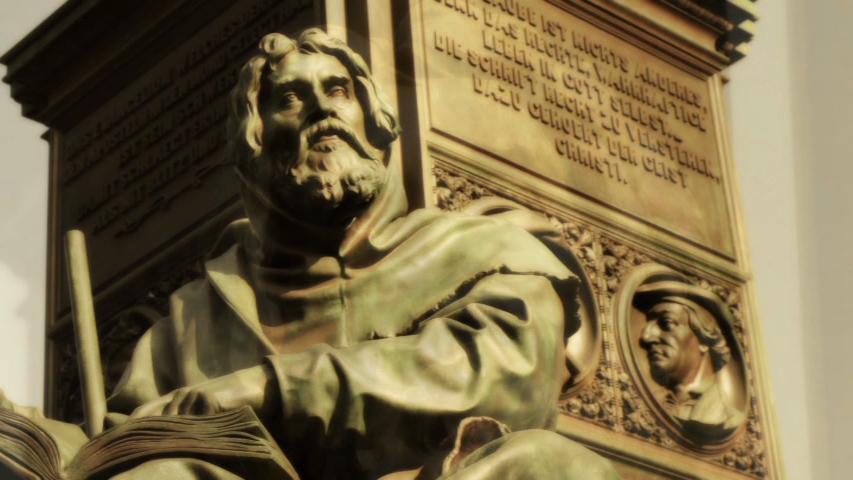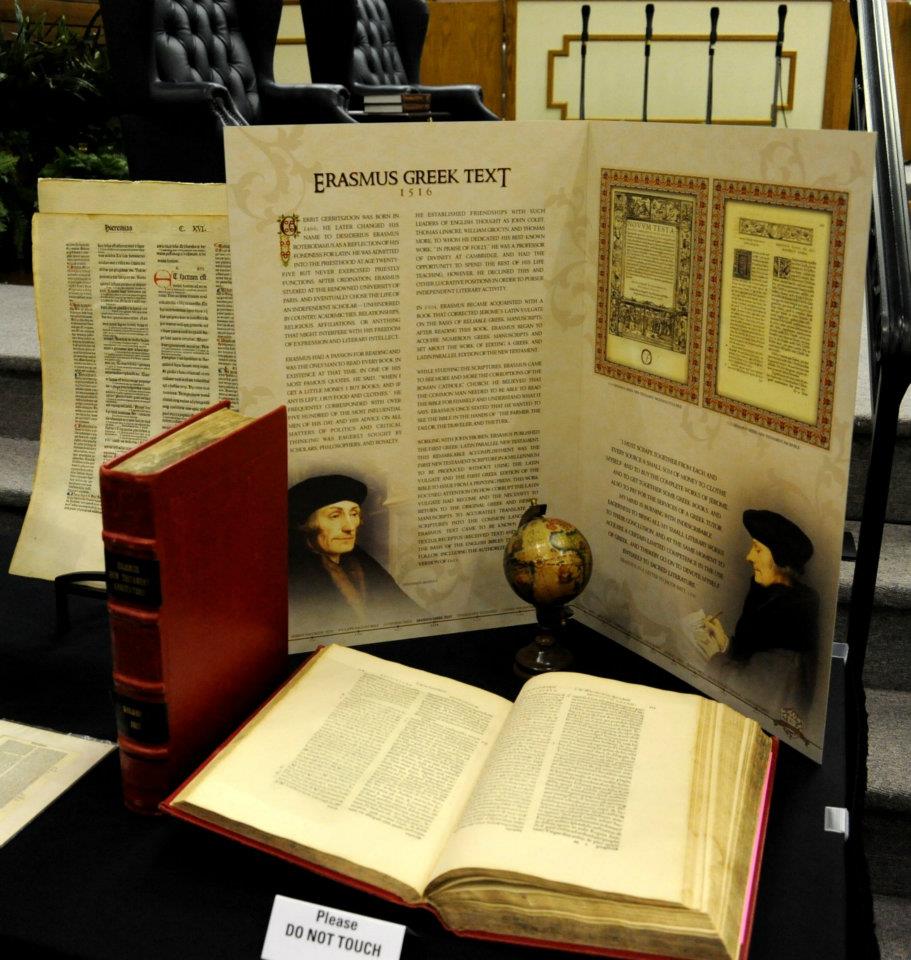|
PROVENÇAL, OR ROMAUNT.
"TOWARDS
the close of the twelfth century, a version of the Scriptures in the language
then spoken
in Southern France is well known to have been made by
Waldo and his disciples.
This version
was probably intelligible far beyond the limits of France; for, up to the
twelfth century, the most
intimate connection, amounting nearly to identity of structure, appears to
have pervaded the dialects
which in the various disjointed portions of the Roman empire, had been
formed, almost simultaneously,
from the corrupt and decaying elements of the old Latin tongue. A copy
of Waldo's version was
presented to the pope at the Lateran Council of 1179;
but the work was condemned and prohibited
by the
Council of Toulouse in
1229, on account of its being written in the vernacular
language.
Many copies were in consequence destroyed, but one
copy was safely conveyed to this country:
it was presented to Morland, Cromwell's ambassador to the Duke of Savoy,
and it was deposited by
Cromwell in the library of
the University of Cambridge. It now appears to be lost; traces,
however,
of Waldo's text have been discovered by Dr. Gilly, who by an elaborate chain
of reasoning demon-
strates the probability of this ancient text being exhibited in the six
Romaunt versions which have
reached our day.
One circumstance which among others may be cited in proof of the
antiquity of the text contained
in these MSS. is, that scriptural quotations occurring in such works as the
"Noble Lesson" and the
"Book of Virtues" (known to have been
circulated among the Waldenses
prior to A.D. 1200) are in
literal accordance with the corresponding passages of the Romaunt version.
A careful collation of
these Romaunt MSS. has established the fact that, although some of the copies
appear to have been
more accurately revised than the others, they are all transcripts of one
version, which seems to have
been in use among all the nations to whom the Romance dialects were
vernacular. This version was
evidently a translation from the Latin,
but it is not a servile imitation of the
Vulgate, the readings of
the old Italic versions having been consulted and occasionally adopted.
This version possesses peculiar
interest from the fact of its being the first translation of the
Scriptures into the vernacular language
produced in Europe after the disuse of Latin as the language of common life.
The six MSS. in which
this ancient and important version is supposed to be exhibited are the
following:--
- The Dublin MS. A. 4., No. 13, contains the New Testament, with
the books of Proverbs,
Eccleslastes, Canticles, Wisdom, and Ecclesiasticus.
This MS. formerly belonged to
Usher, and was presented by Charles II. to the University of Dublin.
It is written in
a dialect which is less purely Provençal than that of the Paris and
Lyons copies, and
which partakes more of the Italian than
of the Gallic Romaunt. As it is known to
have been used among the Waldenses, it is generally called a Waldensian
version.
Le Long and others have erroneously described it as an Italian version.
The Grenoble MS., preserved in the library at
Grenoble, contains precisely the same books as
the preceding, and is written in the same dialect. It is supposed to
belong to the
thirteenth century, and has erroneously been called a Spanish version.
The Zurich MS., C 169/706, contains the New Testament,
and is in the same dialect as the Dublin
and Grenoble MSS.: it is believed to have been written between the years
1350 and
1400.
The Lyons MS., No. 60, is preserved in the public library at Lyons.
It contains the New
Testament, a spurious Epistle to the Laodiceans, and
about ten pages of scriptural
reflections and quotations. The dialect is the same as that of the
preceding MSS., but
apparently the production of a later period, and the style is replete with
Latinisms.
The Paris MS., No. 8086, contains the New Testament
written in a dialect very similar to that
which we find in the older poems of the Troubadours. It is preserved
in the Royal
Library at Paris.
The Paris MS., No. 6833, contains the New Testament, and is described by
Le Long as
"Biblia Catalana, seu veteri Lingua
Provinciali." This MS. is also in the Royal Library
at Paris.
Dr. Gilly, in his edition of
the Gospel of St. John from these MSS., published 1848, gives it as his
opinion that the Paris MS. No. 8086 is perhaps a
transcript of the earliest copy produced by Waldo, and
possibly contains passages of earlier partial versions which were afloat
before the time of Waldo. The
Dublin, Zurich, and Grenoble MSS. display marks of a revised edition of the
preceding, being more
literal, and adhering more closely to the
Latin text than the other
codices. "--The Bible of Every Land. (1860, Second Edition)
Samuel Bagster [Info only]
|

